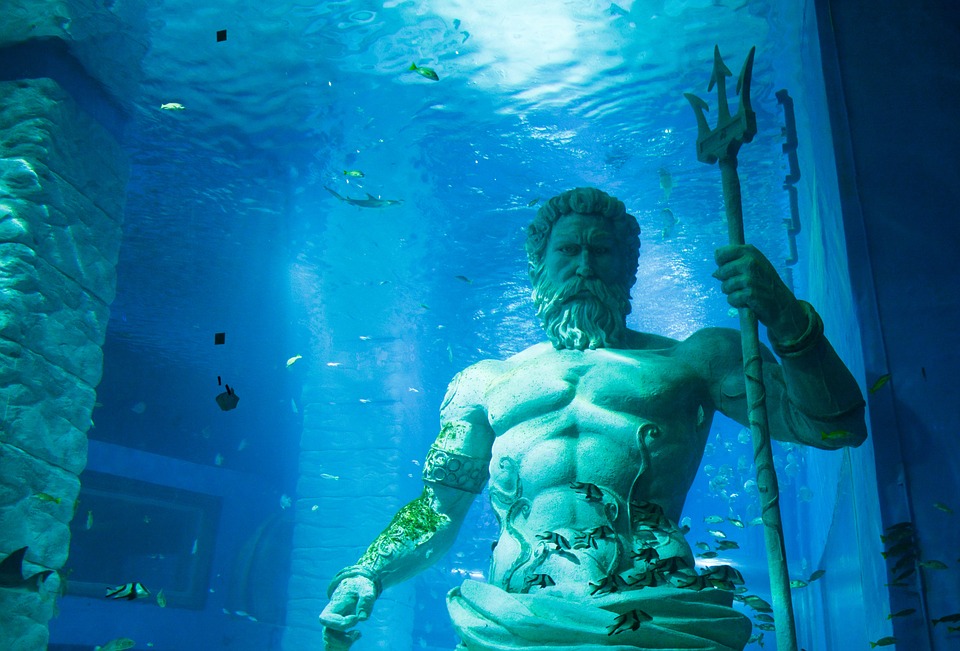“Mermaid” mummy in Japan could be a terrifying monkey-fish hoax, researchers say
01/06/2023 / By Zoey Sky

Mermaids have fascinated people through various forms of media like books, movies and TV shows since the mythical creatures first became popular. They are usually portrayed as beautiful women with fish-like tails.
But in Japan, one mermaid mummy looks nothing like the mermaids in pictures.
According to Japanese researchers, the 300-year-old mermaid could have been made using the remains of two different animals.
Researchers in Japan are looking into the origins of a 300-year-old mummified mermaid that people have worshipped for centuries because it allegedly possessed medicinal properties. The mummy is around 12 inches (30.5 centimeters) long.
However, scientists believe the remains are made up of a monkey’s torso sewn onto a fish’s tail. To complete the “mermaid” look, whoever made the creature might have also added hair and nails from a human.
Hiroshi Kinoshita, a board member of the Okayama Folklore Society, discovered the mermaid mummy inside a box at a temple in Okayama Prefecture. Kinoshita first found out about the mummy after he discovered a picture of the unusual specimen in an encyclopedia of mythical creatures.
A fisherman allegedly caught the mermaid sometime between 1736 and 1741. According to a note left inside the mummy’s box, the fisherman then sold the mummy to the Kojima family, a rich family in Bingo-Fukuyama province.
The mummy had other owners after the turn of the Meiji Era (1868-1912). Experts have yet to confirm how the mermaid ended up inside the temple.
Mermaid with medicinal properties
Takafumi Kato, a paleontologist at the Kurashiki University of Science and the Arts, and his colleagues started looking into the mummy’s origins after Kinoshita convinced the temple to allow the research team to investigate the unusual remains.
The scientists imaged the mummy using a CT scan. Results of the CT and electron microscope analyses revealed that:
- The mummy weighs 365 grams.
- The mummy’s eye orbits are fixed forward and there are eyebrows on the face.
- The mummy has two types of hair: thick straight hair and finer curly hair that grow from the head.
- The mummy has cuticles like those of humans and other primates on the surface of the hair.
Additionally, the mummy has a dorsal fin and caudal fin on its lower body, which is covered in scales.
The mermaid mummy somewhat resembles two mythical creatures from Japanese folklore: Amabies or mermaids with beaks instead of mouths and three distinct tail-fins and ningyos or fish-like creatures with human heads.
Both of these mythical creatures were linked to stories of miraculous health cures and increased longevity. In one famous tale, a woman named Yao Bikuni is said to have lived for 800 years after accidentally eating an entire ningyo.
The temple’s priests think of the mummy as an omen of good health. Kozen Kuida, the head priest at the temple, explained that they worshipped it in hopes of helping “alleviate the coronavirus pandemic even if only slightly.”
Previously, the mummy was put on display in a glass case at the temple for visitors to pray to. But for the last 40 years, the mummy was stored in a fireproof safe within the temple to prevent deterioration.
Two other temples in Japan have also housed similar mermaid mummies that have been worshipped like the Okayama mermaid. (Related: MRI-based map of squid brains reveal cephalopods are just as smart as dogs.)
Fake mermaids were often created to lure tourists
Experts think fake creatures like the Okayama mermaid were created by local people to sell to curious Western tourists.
A similar hoax called the Feejee Mermaid was sold to Dutch travelers in Japan in the 1810s and later resold to English merchants. The Feejee mermaid was eventually shipped to America where it became part of the famous collection of P.T. Barnum.
The Feejee mermaid was a three-foot-long (91 cm) mermaid believed to have been made from two different animals: an orangutan and the tail of a salmon.
The priests at the temple in Okayama Prefecture hope that the study will add to the mummified mermaid’s legacy and help it live on through future folklore.
“I hope the research project can leave scientific records for future generations,” concluded Kuida.
Visit Weirdsciencenews.com for more articles about strange discoveries.
Watch the video below for footage of what some say is another mermaid.
This video is from the EUROPEchannel channel on Brighteon.com.
More related stories:
Antarctic petrels (birds) mysteriously disappear from Svarthamaren Mountain.
Video footage shows pod of killer whales freeing a humpback whale tangled in rope.
Why are so many extremely bizarre “mystery creatures” starting to appear all over the planet?
Sources include:
Submit a correction >>
Tagged Under:
artifacts, deception, discoveries, Ecology, environment, faked, feejee mermaid, hoax, Japan, marine animals, Mermaids, mummy, Okayama mermaid, real investigations, research, weird science
This article may contain statements that reflect the opinion of the author





















